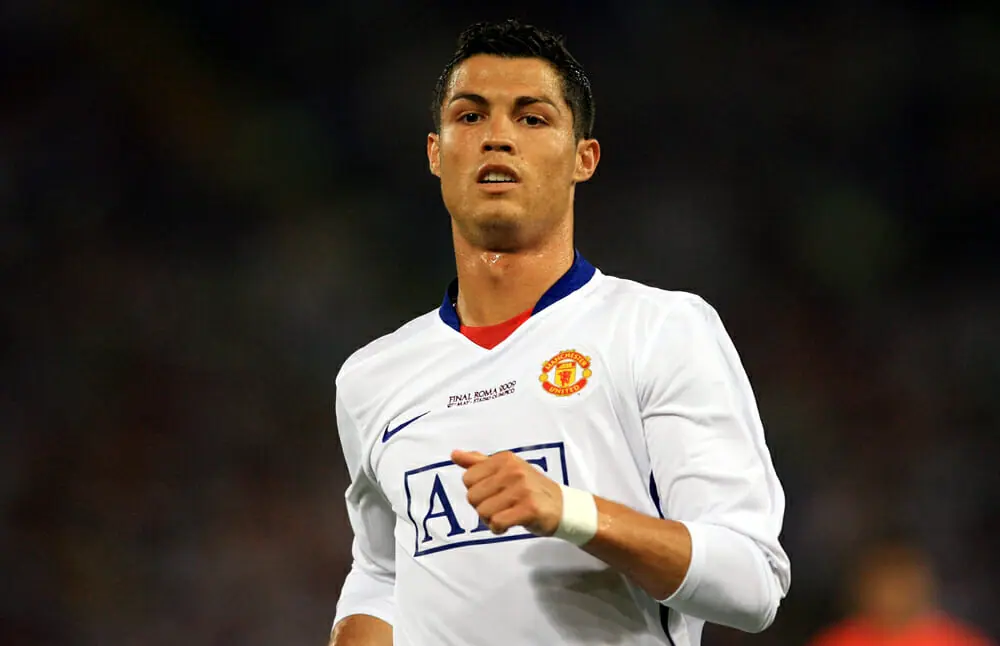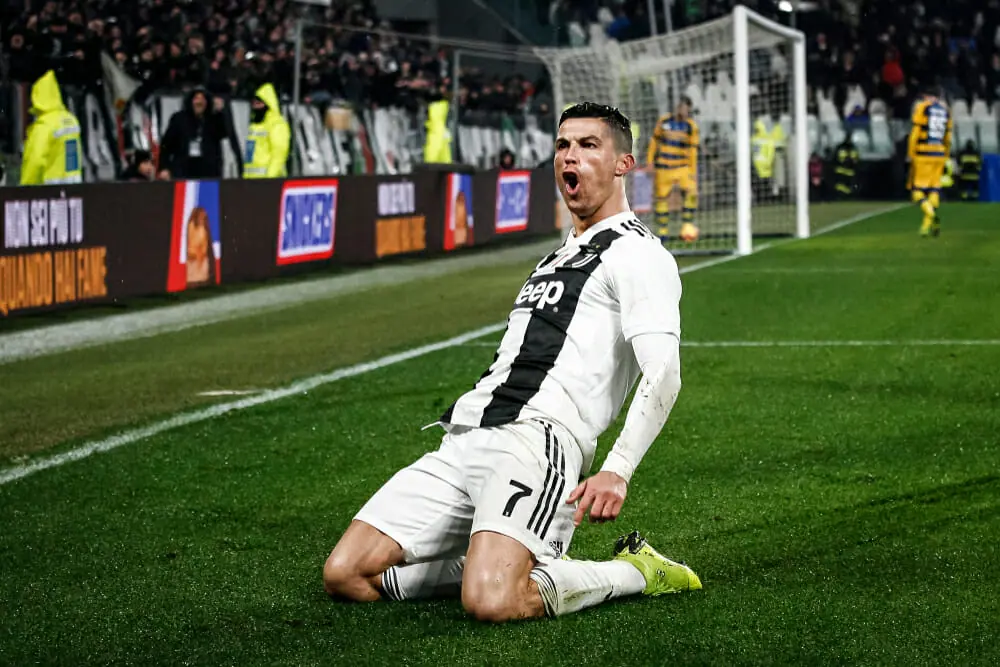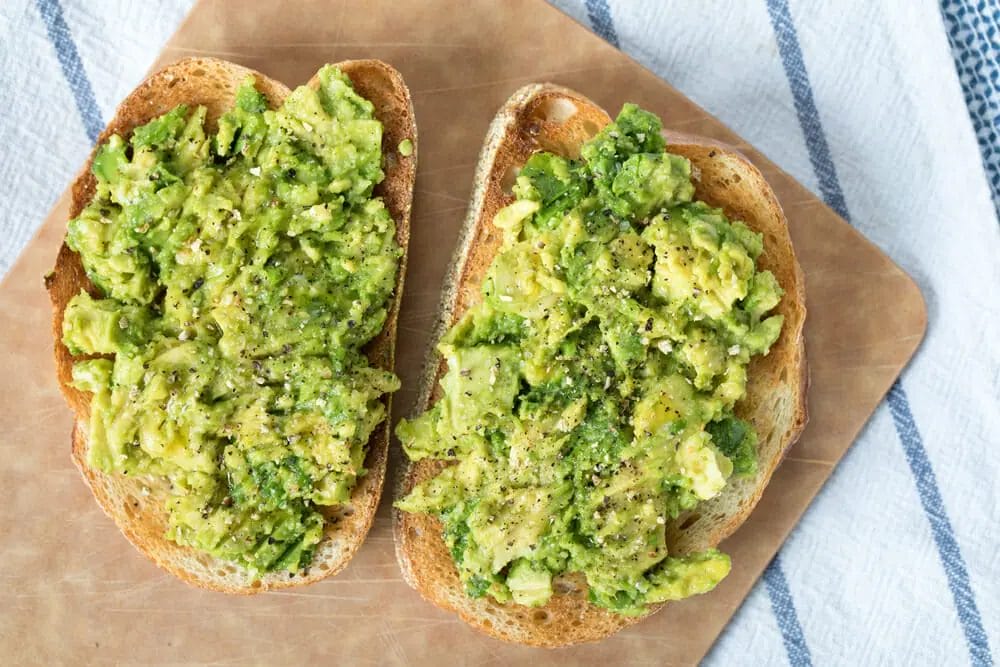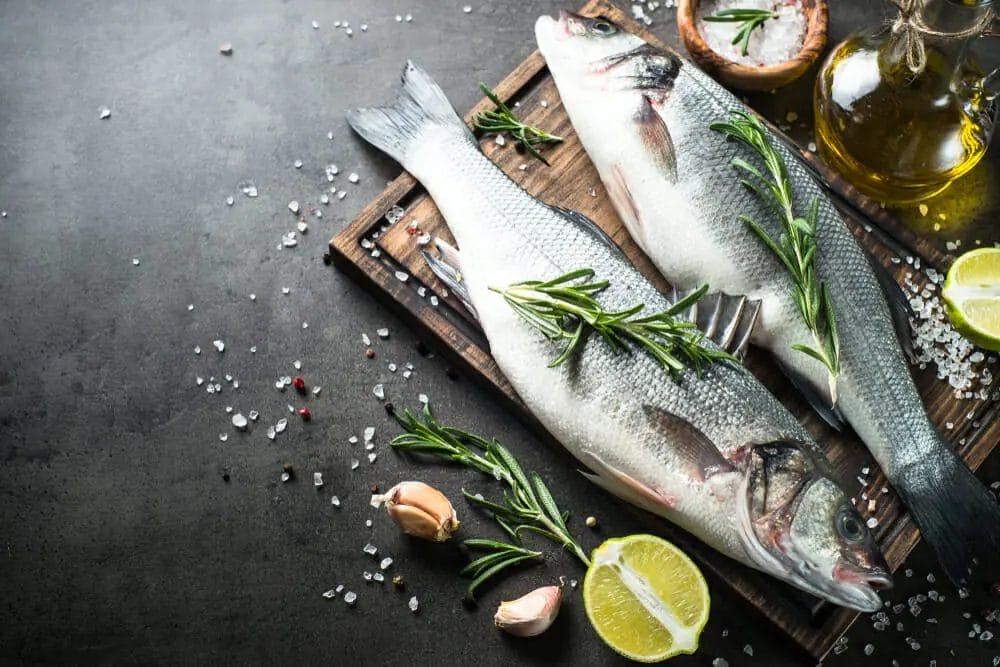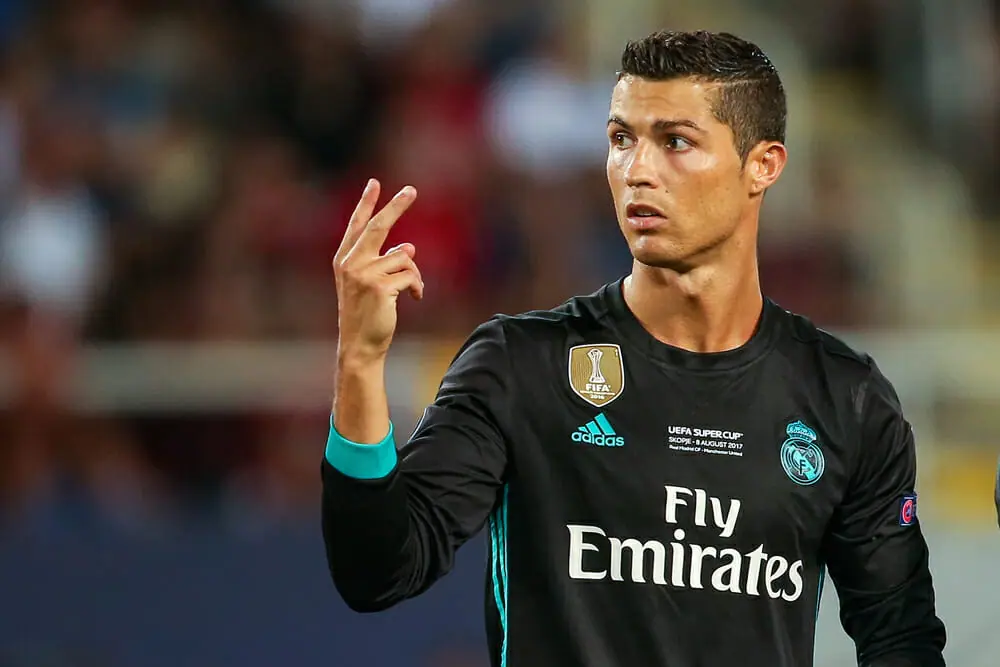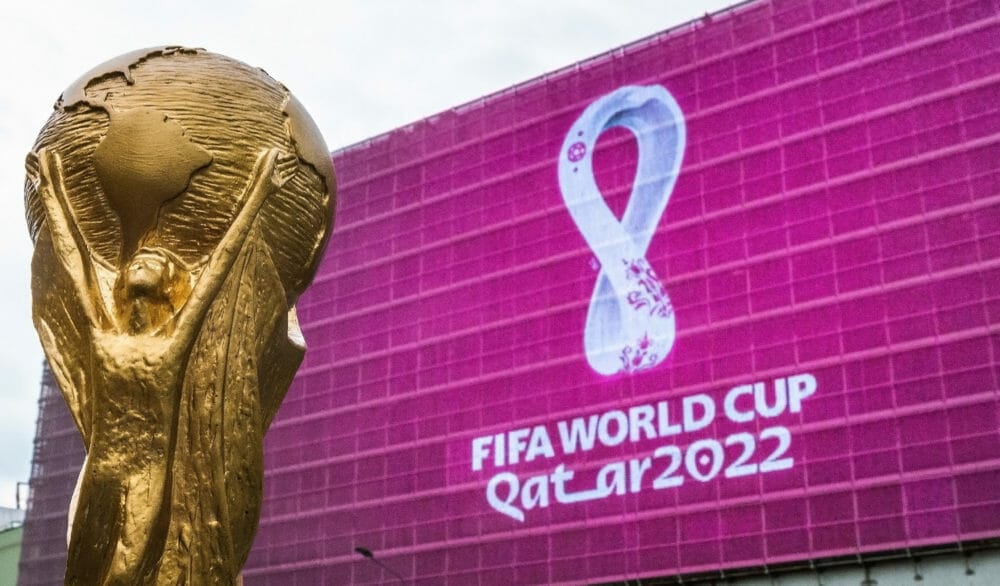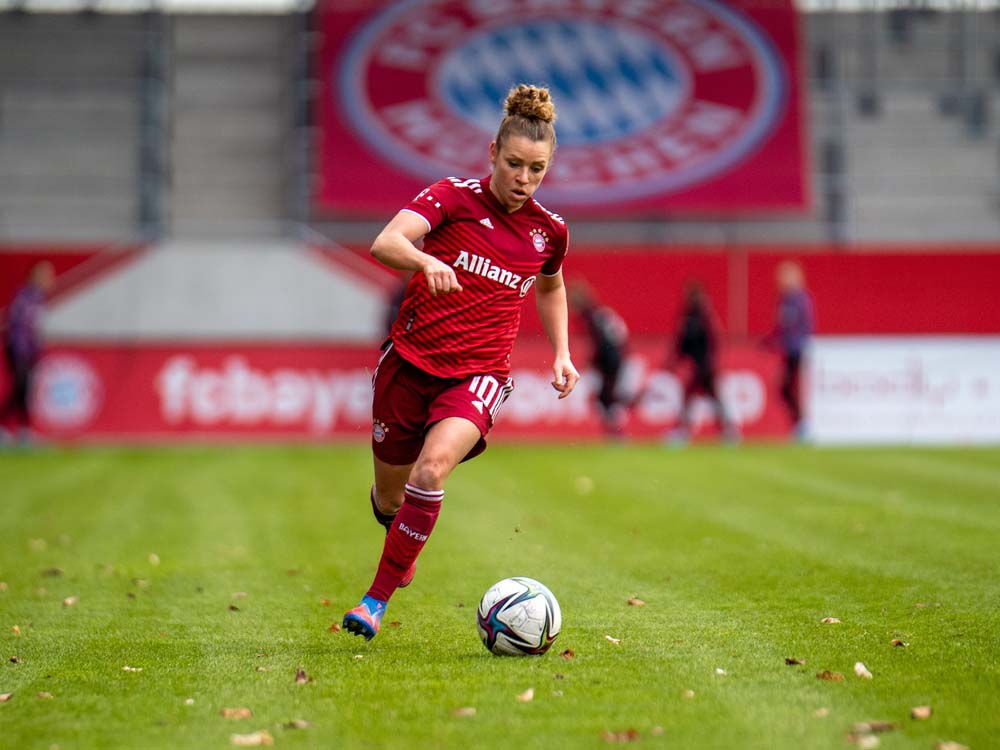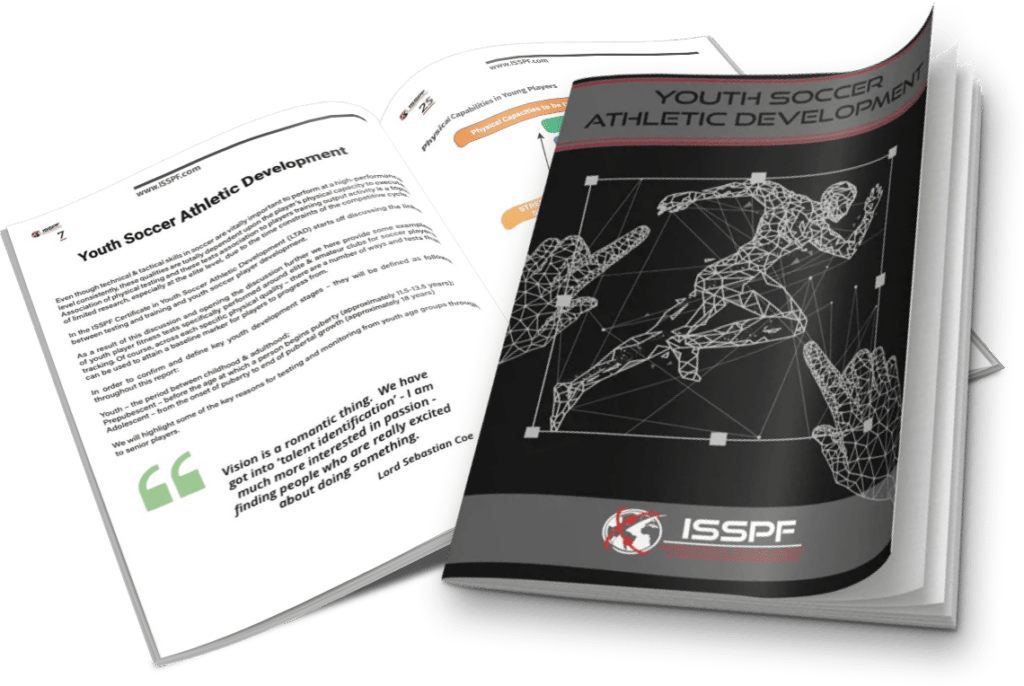At the fine age of 37-years old arguably the greatest player of all time & legendary striker, Cristiano Ronaldo is playing in the Premier League with giants Manchester United.
Having confirmed the agreement to re-sign him from Juventus, everyone is wondering what the secret has been to keep the player healthy, fit & in fine record-breaking form throughout his illustrious career.
Cristiano Ronaldo’s Diet
Having scored 118 goals in 292 games during his initial period at Old Trafford before leaving for Real Madrid in 2009, he is returning over a decade later having won multiple trophies in both La Liga & Serie A, but he remains world-class, & still at the top of the game!
In order to succeed consistently at the highest level, Cristiano Ronaldo gives a snapshot into his eating habits & his focus on food which he has continued for many years.
The legendary Portuguese international has a personal nutritionist who started working with him since his Real Madrid days. He is well known for eating 6x small meals a day which is spread out at a rate of around one meal every 3 to 4 hours.
The importance placed on specific nutrition to aid preparation, performance & recovery of all soccer and other athletes around the world should not be underestimated.
“I eat a high protein diet, with lots of wholegrain carbs, fruit and vegetables, and avoid sugary foods” says the Manchester United forward.
Cristiano Ronaldo Suggested Meal Examples:
- Breakfast: Cheese & Ham, low-fat yoghurt
- Lunch Number 1: Chicken & salad
- Lunch Number 2: Tuna, olives egg & tomato
- Snacks: Fresh fruit, avocado toast
- Dinner Number 1: Fresh fish & salad
- Dinner Number 2: Steak and sea-food mixture
One of the vitally important & key principles of sound nutrition for footballers or soccer performance, involves understanding what a healthy diet looks like. Below we will look a little further into the carbohydrate & protein food types for the soccer players diet.
Carbohydrates
Carbohydrate is stored in muscles and the liver as glycogen. It is stored with about 3x its own weight of water and 3x more glycogen is stored in muscles than in the liver.
Carbohydrate is the most important fuel for working muscles at high intensity activity such as football and is suggested to make up the bulk of your footballers diet.
For most sports people, especially soccer players dietary-wise, 60-70% of energy should come from carbohydrates to be able to perform to maximum levels.
There is a limited supply of glycogen in the body – approximately 2000kcals.
Though training can influence this figure depending upon the requirements of the sport involved.
Proteins
Protein makes up part of the structure of every cell in the body. Proteins form the framework of the body and transporting materials around the body & inside cells.
It is necessary for the growth and formation of new tissues and also to repair damaged tissues.
How Much Protein Should a Soccer Player Eat?
Protein is suggested to make up approximately 12-15% of a soccer player’s diet. Football players require around 1.3-1.8 grams of protein per kilogram of body weight per day.
It is required to manufacture enzymes and hormones such as insulin and adrenaline. Protein is constantly being broken down and rebuilt in the body, therefore it is important that there is a regular supply of protein in the footballers diet in order to compensate for the continual loss that occurs in the body through vigorous training & competition.
Protein is made up of smaller building blocks called amino acids, some of which manufactured by the body and some of which are essential amino acids and must be provided through the soccer players diet.
What are Good Sources of Protein for a Footballer?
- Quality poultry – chicken, turkey
- Quality meat sources: steak, pork, venison (reduced fat)
- Fish (tuna, salmon, cod)
- Eggs
New literature in this space has reported a new way of maximising nutritional intake through ‘nutritional periodisation’ strategies, however this is discussed in more depth within the ISSPF online sport nutrition courses.
Furthermore, many experts in sport & soccer nutrition such as Dr. Eirini Manthou (ISSPF Faculty Member), Virginia Santesteban (ISSPF Faculty Member) CF Real Sociedad ‘Head of Performance Nutrition’ & Dr. Lloyd Parker (ISSPF Faculty Member) Everton FC ‘Head of Nutrition’ plus many more global experts, cover in detail the role of nutrition across all levels of the game within our ISSPF accredited sports nutrition online course.
Join Our Soccer Nutrition Course
The demand for sport nutrition experts, performance & coaching specialists in football & team sports is growing year upon year.
Thousands of students are leaving university with a sport science degree, however many of them asking the key question – What now?
- How do I get a job in football?
- What’s the next step?
- Which area of sport or football science do I want to specialise in?
This is certainly an interesting question as progressing from completing a sport science or nutrition related degree to then working in professional football & trying to understanding all the key components, and soft skills that come with jobs in football or careers within sport.
The bespoke courses developed by ISSPF Elite Faculty members are a way of further exposing sport science & nutritional-related students, individuals working within the game & other football science enthusiasts with a thirst to develop further in this specific nutrition & performance area.
The link below will take you to the hugely popular & expertly designed ISSPF endorsed & accredited Soccer & Sports Nutrition online sport science course, where you will be exposed to football science & specific sports nutrition coaching led research, practical examples used by leading practitioners.
How This Course Will Improve You
- Understanding the key energy sources required to perform repeated high intensity & explosive movements within the intermittent nature of soccer is of paramount importance.
- Fueling to perform & recover from both training, and competitive games are very specific across a range of levels of the game.
- All practitioners and coaches can only benefit themselves and their players even further by having a more in-depth knowledge of sports nutrition.
- It may help you to reduce the risk for non-contact muscle injuries, through a better understanding of key timing of nutrients.
What Does This Course Cover?
Outline of the Accredited Sports Nutrition Online Course:
Module 1: Energy balance & body composition: basics of soccer physiology
Lecturer: Sam McHaffie (Science In Sport [SIS]) England
Topic: Sport Nutrition & Environmental
Module 2: Understanding Macro & Micro-nutrients
Lecturer: Dr. Eirini Manthou (Olympiakos) Greece
Topic: Sport Nutrition & Environmental
Module 3: Soccer health & wellness (vitamins, minerals)
Lecturer: Matthew Jones (West Ham United, Chelsea WFC) England
Topic: Sport Nutrition & Environmental
Module 4: Fluid balance & soccer specific hydration
Lecturer: Virginia Santesteban (Real Sociedad CF) Spain
Topic: Sport Nutrition & Environmental
Module 5: Training, Match & Recovery Fueling – Soccer Nutrition to Perform
Lecturer: Dr. Adam Owen (Seattle Sounders FC) Wales
Topic: Sport Nutrition & Environmental
Module 6: Maximising nutrition through injury
Lecturer: Faisal Alshawa (Aspire, Qatar) Kuwait
Topic: Sport Nutrition & Environmental
Module 7: The role of nutrition for the female soccer player
Lecturer: Dr. Yasemin Batmaca (Besiktas) Turkey
Topic: Sport Nutrition & Environmental
Module 8: An introduction to nutritional supplementation and ergogenic aids
Lecturer: Matthew Jones (West Ham United, Chelsea FC) England
Topic: Sport Nutrition & Environmental
Share this article:
